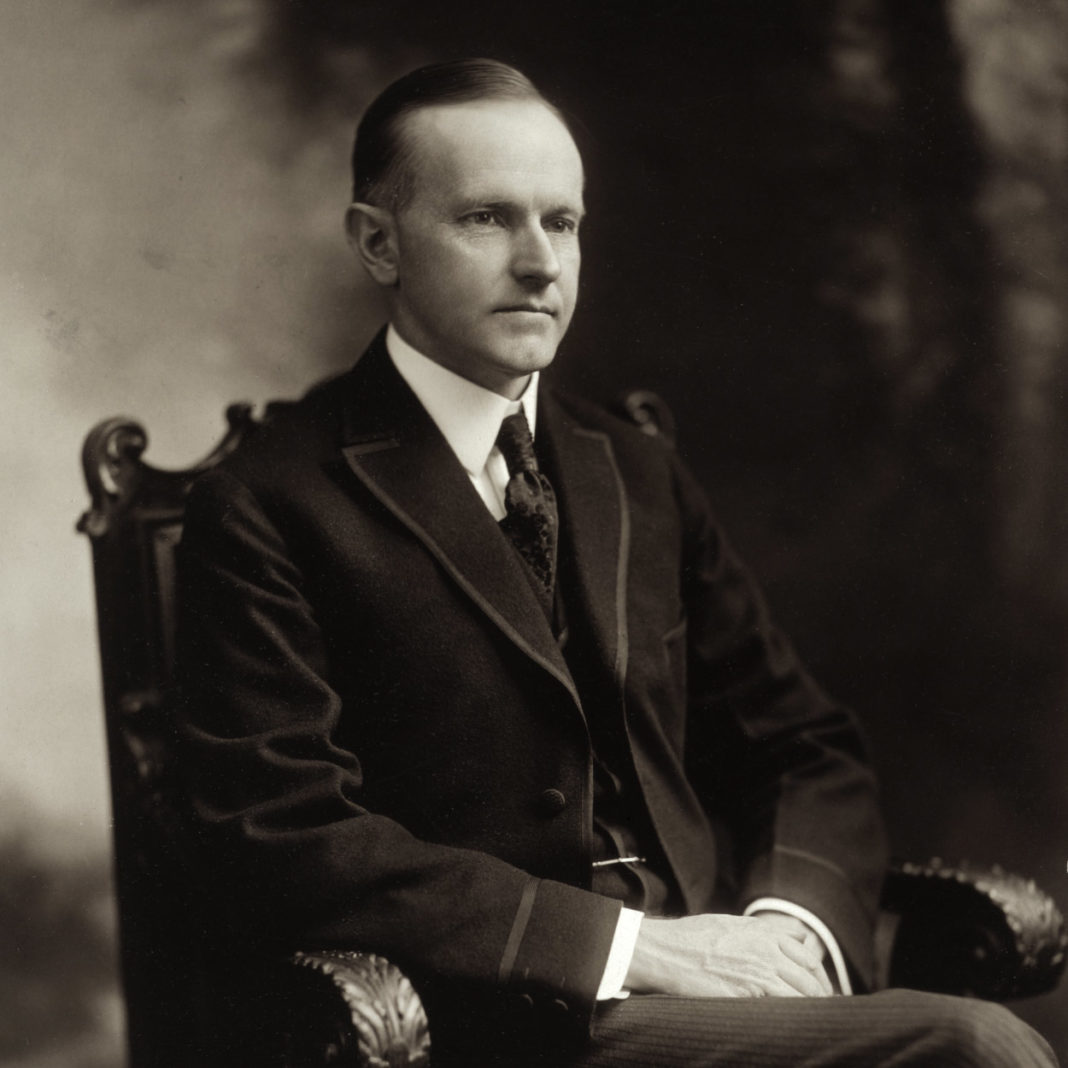President Calvin Coolidge represents the best example of American conservatism. Whether in his political philosophy or temperament, Calvin Coolidge can serve as a guide for today’s conservatives. Conservatives during the 1920s placed the American Founding and the Constitution as their philosophical center. Coolidge had tremendous respect for both American history and faith. These were both pillars of his philosophy. As President, Coolidge was a champion of adhering to constitutional limited government. He believed that economic policy was moral. Coolidge often referred to economy in government, which meant a balanced budget, reducing spending, tax rates that were low and reasonable, and paying down the national debt. President Coolidge would be horrified if he could hear the numerous arguments that a $28 trillion national debt does not matter, and the federal government can just continue to spend without consequences.
The conservatism of Calvin Coolidge goes further than just limited government, spending reductions, and lower tax rates. Americanism or nationalism was another cornerstone of Coolidge’s political philosophy. “We do not need to import any foreign economic ideas or any foreign government. We had better stick to the American brand of government, the American brand of equality, and the American brand of wages. America had better stay American,” stated Coolidge. For Coolidge conservatism also included the preservation of American sovereignty, controlling and assimilating immigration, and protecting the national economy through tariffs.
The Americanism of the 1920s represented placing the interests of Americans first, which was the campaign slogan of Senator Warren G. Harding in the 1920 presidential election. The Republican victory in the election of 1920 was a contrast to the progressivism and foreign policy idealism and internationalism of President Woodrow Wilson. The foreign policy of President Warren G. Harding and President Calvin Coolidge focused on “preserving American independence.” “While we desire always to cooperate and to help, we are equally determined to be independent and free,” stated President Calvin Coolidge.
The Republican foreign policy of the 1920s was far from isolationist. Although the United States did not join the League of Nations, President Harding and later President Coolidge led efforts at disarmament with the Washington Naval Conference. To stabilize German war debts and European finance in the aftermath of the Great War, President Coolidge organized the Dawes Plan.
President Coolidge did not oppose internationalism, as an example he supported the World Court, but he was more interested in preserving American independence and sovereignty. This also meant that Coolidge did not see America’s role as a crusader for democracy. “Ultimately nations, like individuals, cannot depend upon each other but must depend upon themselves. Each one must work out its own salvation,” noted Coolidge.
The foreign policy nationalism of Coolidge also applied to economic and trade policy. The Republican Party with its roots from Alexander Hamilton’s Federalists and Henry Clay’s Whig Party, supported economic nationalism. This tradition is referred to as the American System of economics, which called for a national economic policy.
A major part of the national economic policy was trade protectionism. The Republican Party was the political party of trade protectionism. President Warren G. Harding’s victory returned the Republican protectionist policies with the enactment of the Fordney-McCumber tariff. Coolidge believed that the protective tariff not only benefited the national economy, but also protected American workers.
“Our only defense against the cheap production, low wages and low standard of living which exist abroad, and our only method of maintaining our own standards, is through a protective tariff. We need protection as a national policy, to be applied wherever it is required,” stated Coolidge.
During the presidential campaign of 1924, Coolidge campaigned on the theme the “Full Dinner Pail,” a campaign slogan used previously by President William McKinley. The “Full Dinner Pail” represented economic prosperity, high wages, and a sound economy, all by prospering America first.
Finally, Coolidge applied his conservative nationalism to immigration. Republicans, including President Theodore Roosevelt, stressed Americanism, and assimilation of immigrants. In 1924, President Coolidge signed the Johnson-Reed Act into law, which restricted immigration. Coolidge supported the measure with some reservations, but restricting immigration was viewed to be in the national interest.
As Coolidge argued: “Restricted immigration is not an offensive but a purely defensive action. It is not adopted in criticism of others in the slightest degree, but solely for the purpose of protecting ourselves. We cast no aspersions on any race or creed, but we must remember that every object of our institutions of society and government will fail unless America be kept American.”
Coolidge gave credit to both the protective tariff and restricting immigration for not only economic growth, but also protecting wages.
President Calvin Coolidge’s conservative nationalism can be seen in both his foreign and domestic policies. Coolidge, just as the other Republican presidents of the 1920s, believed in American exceptionalism, yet understood that America prospered most when American interests were placed first. The political philosophy of Calvin Coolidge is far from obsolete. Republicans and conservatives need Coolidge more than ever.
John Hendrickson is policy director for Tax Education Foundation of Iowa











